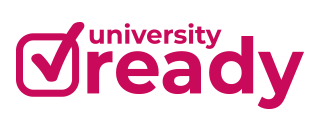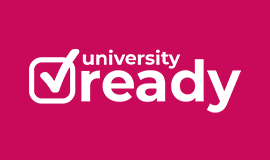-
Religious diversity: rethinking religion
Learn more to access more details of Religious diversity: rethinking religionReligion is not necessarily what you think it is! This free course, Religious diversity: rethinking religion, introduces you to a selection of the vast variety of religious beliefs and practices in Britain today. Having some familiarity with religion and belief is increasingly required to make sense of issues of local, national and international...

Free course
12 hours
Level: 2 Intermediate
-
Introducing the philosophy of religion
Learn more to access more details of Introducing the philosophy of religionIn this free course, Introducing the philosophy of religion, Timothy Chappell, Professor of Philosophy, asks what the words 'God' and 'religion' mean, and what it means to ask philosophical questions about them.

Free course
12 hours
Level: 2 Intermediate
-
Robert Owen and New Lanark
Learn more to access more details of Robert Owen and New LanarkChildcare, education, working conditions, healthcare, crime: these issues are hotly debated in today's society. They are also issues that Robert Owen, seen by some as a visionary and by others as a knave and a charlatan, sought to address in the early 1800s. This free course, Robert Owen and New Lanark, uses a series of essays written by Owen to...

Free course
12 hours
Level: 2 Intermediate
-
The moral equality of combatants
Learn more to access more details of The moral equality of combatantsThis free course introduces and explores the idea of the moral equality of combatants and discusses the question of the basis of liability to killing in war. It invites students to understand and assess the epistemological argument for the moral equality of combatants and other arguments for and against this idea.

Free course
16 hours
Level: 3 Advanced
-
The ethics of cultural heritage
Learn more to access more details of The ethics of cultural heritageThis free course, The ethics of cultural heritage, provides the basic theory behind the protection of cultural property in war zones and is presented in three parts: the protection of cultural property; the legal basis for that protection; and accounts of proportionality (that is, on deciding whether or not there is a feasible alternative to ...

Free course
12 hours
Level: 2 Intermediate
-
Exploring philosophy: faking nature
Learn more to access more details of Exploring philosophy: faking natureCommercial exploitation of nature, such as mining, fracking, or generating hydro-electric power, often damages the way the natural environment looks. What if the environment could be restored to exactly how it looked before? Would that mean that no damage had been done, that the natural environment was as valuable as it had been before the ...

Free course
9 hours
Level: 3 Advanced
-
Imagination: The missing mystery of philosophy
Learn more to access more details of Imagination: The missing mystery of philosophyWhat is imagination and can philosophy define it in any meaningful way? This free course, Imagination: The missing mystery of philosophy, will introduce you to some of the possible answers to these questions and will examine why philosophy has sometimes found it difficult to approach imagination. It will then go on to examine the relationship ...

Free course
20 hours
Level: 3 Advanced
-
David Hume
Learn more to access more details of David HumeThis free course, David Hume, examines Hume's reasons for being complacent in the face of death, as these are laid out in his suppressed essay of 1755, 'Of the immortality of the soul'. More generally, it examines some of the shifts in attitude concerning death and religious belief that were taking place in Europe at the end of the eighteenth ...

Free course
16 hours
Level: 2 Intermediate
-
Philosophy: the nature of persons
Learn more to access more details of Philosophy: the nature of personsWhat is a person? This free course, Philosophy: the nature of persons, examines this philosophical question concerning the nature of personhood. You will examine whether a 'person' is the same as a 'human being', and look at whether it is our free will that in the end defines us as a 'person'.

Free course
15 hours
Level: 3 Advanced
-
Minds and mental phenomena: an introduction
Learn more to access more details of Minds and mental phenomena: an introductionThis free course, Minds and mental phenomena: an introduction, examines the philosophical questions surrounding the mind. You will examine how beliefs have changed over the centuries and be able to contrast the views of Descartes with more modern ideas.

Free course
20 hours
Level: 3 Advanced
-
Emotion: an introductory picture
Learn more to access more details of Emotion: an introductory pictureWhat is emotion? This free course, Emotion: an introductory picture, takes a philosophical approach to this question in an attempt to understand why people respond to events in a certain way. Is there a difference between an emotion and a bodily feeling or is one a consequence of the other?

Free course
20 hours
Level: 3 Advanced
-
Introducing consciousness
Learn more to access more details of Introducing consciousnessWhat is consciousness? How does the brain generate consciousness and how can a science of the mind describe and explain it adequately? This free course, Introducing consciousness, will introduce you to the slippery phenomenon that is consciousness, as well as some of the difficulties consciousness presents to science and philosophy.

Free course
20 hours
Level: 3 Advanced
-
Language and thought: introducing representation
Learn more to access more details of Language and thought: introducing representationHow does what you say come to mean something? Does what you say inherently represent what you, the speaker, think it means, whatever that might be, or does what you say carry its own meaning, separate from your intentions in saying it? This free course, Language and thought: introducing representation, introduces you to the key questions about ...

Free course
20 hours
Level: 3 Advanced
-
Two concepts of freedom
Learn more to access more details of Two concepts of freedomWhat defines individual freedom in a civilised society? Philosophers have argued over such questions for centuries. This free course, Two concepts of freedom, looks at a positive and a negative concept of freedom, asking you to think carefully about how freedom is restricted by our place in society and how it can vary from state to state.

Free course
20 hours
Level: 2 Intermediate

This resource is part of the University Ready hub.
Find more resources like this on the hub homepage.
-
University Ready hub
Learn more to access more details of University Ready hubA collection of resources from all of Wales' universities to help you get started with higher education.

External link
Rate and Review
Rate this article
Review this article
Log into OpenLearn to leave reviews and join in the conversation.
Article reviews